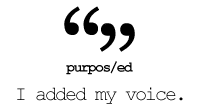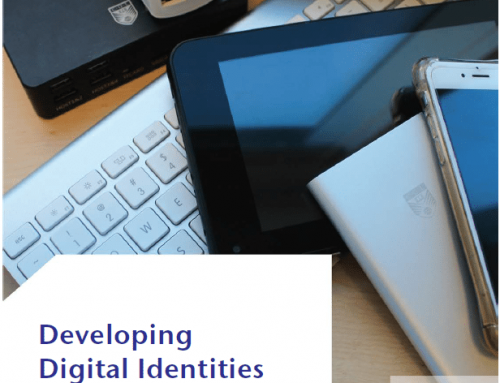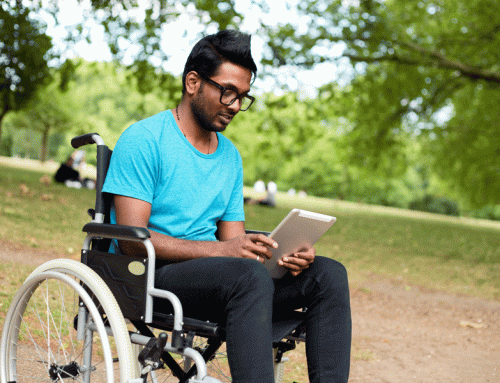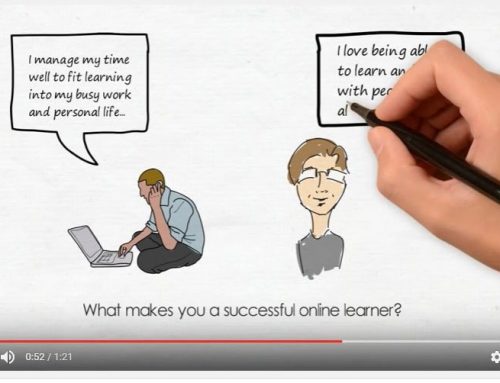Our son has made us question every aspect of our lives and our place in society.
Like most families we encounter informal learning opportunities every day. However we decided not to participate in the formal education offered by the state. We learn at home, in our community, in the wider world.
My son has Aspergers syndrome – with complex learning needs – our curriculum is broad, diverse and multidisciplinary. It has to be flexible and responsive. He learns during face to face activities and connects and collaborates through online games. His learning opportunities reflect the world he lives in, and the one he will need to be able to survive in as an adult.
The state education system failed dramatically to respond to our son’s needs because it offers a standardised one-dimensional approach that assumes a commonality of potential. It only measures one form of intelligence and the structure of both the curricula and the physical environment is inappropriate for the demands of the 21st Century. This is more expertly described by Ken Robinson below.
Our, sometimes painful, experience has revolutionised our thinking as parents and as people who have always worked in education. We have now transformed our lives, the way we work and the way we live to enable us to ensure that he has enough self esteem and a safe environment to reach his own potential.
Like many others I tweeted for #purpos/ed – ‘The purpose of education is to help every person reach their potential’ I believe that until formal education can actually do this then it is failing the society it claims to support. Flexible curricula can support a ‘inclusion agenda’ – but the drive to create equality of opportunity does not result an equitable experience.
Capitalist societies want educated populations to operate the means of production, but don’t really want people who are able to question the very structure they are living in (which links to what Stephen Downes said in his ‘purposed’ post yesterday). We didn’t question the UK approach to education – we chose a ‘well performing school’ and got drawn into the daily rituals that surround it and support it – we all tried to conform. We got sucked into the capitalist way of being – greater access to material goods reducing our desire to question -sucked-in to working to continue purchasing materials – into making our cage look prettier. In rejecting these values we are finding a new way of educating that is based on mutually enriching learning experiences – a symbiotic relationship that erodes the notion of teacher.
Questions that we would like to explore further in future blog posts and in dialogue during this debate…
- How can a ‘mass’ education system allow for and support difference so that everyone can reach their full potential?
- Is there a place for standardised testing in any model of education?
- How do we develop student centred learning where students contribute to design, creation and delivery of curricula?
- What kinds of structures and models will shape future educational institutions?
My son and my partner Tim both contributed to this post…
Written in response to the 500 word challenge on Purpos/ed








Great stuff, Lou – especially your point about the difference between equality and equity. 🙂
Thanks Doug – I do think the inclusion agenda led us astray – good intentions and all but not sufficently funded to actually achieve the vision. The Warnock report and the resulting SEN provison was deeply flawed in relation to autistic children, which Mary Warnock has openly admitted. Funding is not the only answer though – raising awareness is crucial. I think alot of us in education did get carried along with the equality mantra without understanding the more subtle issue of equity.
I’d be interested in your take on this BBC News article citing a study on the role of ‘genes’ in classroom performance:
http://www.bbc.co.uk/news/education-12339798
(I can’t help but think there’s an elision of several issues here…)
I think there is so much that we could have covered that it was really impossible in just 500 words too even scratch the surface. For me the experience we went through really altered my thinking about education. As an art lecturer I was always uncomfortable with the idea that we could measure aesthetics and design a programme of study that allowed all students to reach their potential. Now I believe that the system can never address student centered learning whilst its drivers are initiated by capitalist requirements and a society that allows class to define our potential. If we truly believe in everyone reaching their potential then we would as a society fund every pupil to the tune of 30,000 pounds a year (Eaton) and not the 2,500 (State) that is the normal at present. I know a lot of us have vested interests in the education system but as educators we are also in the position to challenge current thinking on education. Why limit your ambitions in the strait jacket of a failing system when we can shoot for the moon.
Great blog Lou
About time you read my blog!!
I enjoyed writing this post with you – been a hell of a journey…
you’re telling me, that black eye you gave me still hurts ;)))
[…] http://loumcgill.co.uk/?p=466 […]
A thoughtful post Lou the content of which resonates with me and my views on Education .
As a society we espouse the virtues of higher order thinking of questioning the status Quo but as you point out the capitalist system requires cogs for the wheels of production in this respect little has changed in the last 100 years.
Well said all of you! Great post! “we are finding a new way of educating that is based on mutually enriching learning experiences – a symbiotic relationship that erodes the notion of teacher.” God, wish I’d have come up with that – and so glad that you and others like you are doing just that.
Sheila
[…] Read more: RT @loumcgill my #500words contribution to the #purposed debate http://loumcgill.co.uk/?p=466 #HomeE… […]
[…] This post was mentioned on Twitter by PaulHollins, Sheila MacNeill and lou mcgill, Helen Blanchett. Helen Blanchett said: Reading @loumcgill 's #500words contribution to #purposed and watched Ken Robinson's talk – v thought provoking http://bit.ly/fpW4ST […]
A great post on this very important discussion. I am especially glad to see the personal questions and issues that a parent has to deal with being raised. Parental choice is much talked about – but rarely exercised – and powerful and smart voices like yours are a welcome change from the school based educators that we normally hear from. Inspiring me to write a new post for this debate…
Thank you
thanks eylan
make sure you share a link to your post – I look forward to reading it.
Hello Lou, Very interesting and thought provoking piece. Thank you for sharing your personal experiences.
All too often, it seems to me, we place too much emphasis on the results, the marks, the grades rather that encouraging learners to learn. This emphasis, on short term measurement — instant gratification — does not have an exclusive domain in education. It rears its ugly head all through our western society. Will Hopper in his social history of America , The Puritan Gift, describes the creeping credentialism and so called professionalism that has infected our educational institutions, and the false link that it attempts to make between a certificate and a measurement, and the ability of an individual or organisation to continue to grow and to learn.
Here in the UK, based on my limited experience, there seems to be a wide gulf between the learning that takes place at the school that my young daughter attends, and the measurement driven, time limited, outcomes that are pursued at the Universities where I work. I fear that her love, her passion to learn which is inspired by loving and caring teachers who want her to be the best that she can be may be destroyed when the Standard attainment tests kick in.
The purpose of education? To make learning a Joy
Thanks for the comment David.
Totally in agreement about making learning a joy. My son spent the last year of his primary school going over and over the same stuff as the teacher tried to get the whole class up to test standard. It was boring, as he’d already got it the first time she did it (He is very bright). The whole year was such a waste academically. We had sent him there to overcome his terribly negative experience in a previous school so there was a value in him attending that final year – it was an unusually small school (as it was being closed down) and the Head was amazing in fostering a sense of community in a very tough environment in Glasgow. Once his primary phase finished it took us a while to ‘unschool’ ourselves but it was certainly a joy to be rid of repetative and mind numbing lessons.
similar situation happened to my son during his primary years. at just 6 years old, he spent hours with a teaching assistant putting objects in water . This was to continue until he could predict which would sink or float – he has semantic pragmatic disorder and at the time the vocabulary was meaningless to him. the result of curriculum writing based on false assumptions.
At its most basic, the current model means that the education system is there to serve the needs of the economy first and the needs of children second. As you say, it all comes back to capitalism.
Hi blue sky
thanks for your comment – I know you appreciate what I’m talking about and hope things settle down for you a bit…
Too tired to word this very well! I am a Year 2 teacher. It is never really reported that Year 2 children take part in SATs. As year 2 teachers we are constantly pushed (by the senior leadership team) to achieve a certain number of level 3s relating to both how the children performed in Foundation Stage and to national expectations. It is irrelevant that children have different needs (learning or emotional), we are still expected to get the grades. I spend more time assessing children’s learning, reporting it and analysing data than I seem to have time to make their learning fun (although I do make it fun by spending my own time and money because I love the children in my class).
I have two pre-school children who I think (probably as every parent does) are very bright and I wish that I didn’t have to send them to school – it makes me sad to think of them being so limited in their opportunities to learn.
Hi Vinni
This doesn’t sound like a great experience for you either – it must be very demoralising if you went into teaching to inspire and help children enjoy learning to find that you are thwarted in that.
I do feel for teachers too – and maybe I have not said that clear enough here really. I have known many teachers who work incredibly hard and manage to overcome some of this.
The other issue, for us, is that teachers are expected to acheive so much with very large classes of very diverse children – an impossible task.
Thanks for your post.
[…] a voice for people outside the formal education system. I think we questioned that system and presented one view from the home education/home learning perspective and also from the perspetive of people living […]
I think what was interesting this week has been the Russell group of universities stating that they will be looking for traditional A levels in candidates applying. And the debate about soft and hard subjects which fails completely to address what students actually want to study. In thinking about this question I am struck by how limited the debate around our education system has become. What is shocking is that people believe that maths, science and engineering are more important subjects and harder to study than arts based subjects. It is the mistaken assumption that these subjects will lead to a better job or that we should structure our education purely on what capitalism wants.
I feel we will see a strong shift in education to ‘traditional’ values which not only undermines educational development but is blinkered to the real possibilities out there. It has been an interesting week and I have to say I have been enjoying thinking about education and reading about it. What is important is that we don’t give up trying to break free from the constraints of system and not allow capitalism stop us dreaming.
How dare you damn the whole education system, claiming that it “offers a standardised one-dimensional approach that assumes a commonality of potential.” You offer a one dimensional view of the education system, and your analysis is evidence-free, jargon-filled nonsense.
Dear Mr AccurateJoe (aka AnonymousCoward),
Two things:
1. Debate is about putting forward opinions and discussing them without name-calling. #fail
2. If you’re going to quote something in support of what you’re saying, don’t distort the message. Lou actually began that sentence with “The state education system failed dramatically to respond to OUR son’s needs…” #fail
Looking forward to your reply with your real name. 🙂
Apart from the fact that this is anything but a one-dimensional view of the education system, despite being about personal experience, and that it is rather light on jargon and provides a reasonable amount of cross-referenced evidence, I think you may be missing the context of the post – it is a response to a specific challenge with a word limit.
However, I’m sure Lou will furnish you with more details in good time.
It is always difficult for people, when challenged, to question the structure and nature of a system that has been presented over the last 40 years as the bench mark of a progressive society. The education system has thousands of outstanding professionals working in it that are dedicated to offering excellent educational opportunities. However if that system is fundamentally flawed and its structure is based on an economic model, then no amount of good intentions can make up for its limitations. Our piece wasn’t an attack on the professionals who work in education but a questioning of the structure and underlying drivers that form our education system. I would hope that before you comment again on this piece that you spend some time reading the other #purposed blogs.
While I can’t stick up for the whole state education system, and I have good friends who, like you, have been failed by it, I know there are pockets that are already answering some of the questions that you pose. A large primary I know of in Birmingham – 700 children 99% EAL – please excuse the jargon 😉 – dispenses with the formal curriculum in the afternoons, basing the learning around the 12 aspects of learning described in the Excellence and Enjoyment materials published a few years ago: http://nationalstrategies.standards.dcsf.gov.uk/node/88211
Birmingham itself as a local authority bases its approach on ‘personalised learning’ with ‘quality first teaching’ as its central strategy (apologies for more jargon). Quality first teaching is an approach that places the interactions a teacher has with the pupil as the top priority, those interactions being appropriate to the pupil’s need, whether it be mainly 1:1, group-based or whole class.
I think one of the key problems we have is tied up in the words you use when you say “when we chose a ‘well-performing school'”. The very fact that we have ‘well performing schools’ means that we don’t have a mass education system – we only have pockets of good practice. In addition well performing schools are so called because they have good results in GCSEs or Y6 SATs, not because they are good at educating ASD children. My own belief is that parental choice skews this even further, with more aspirational families choosing better performing schools on the basis of league tables. As a parent myself I can feel the tension growing as my children get closer to secondary school – do I do ‘what seems best for the kids’ and push for the so-called best school? Or do I hold the line and send them to the local comprehensive? I don’t have the answer on that one yet – but maybe my own hesitance at doing what I believe in is something to do with it.
Thanks for sharing your story.
Thank you for you post and thank you for sharing, I think for all of us it is a struggle to know what to do for the best. We were lucky enough to be able to Home Educate but most don’t have that option. I think for my point of view that we should always try to help our children reach their full potential which is very different from them jumping through academic hurdles that only reward one form of intelligence. Although this might mean they get hundreds of A star grades and go to a traditional university at least they will be happy and fulfilling their real potential.
[…] meeting the challenge that Mike Wesch set us, we have had some stimulatingly personal views from Lou, Stephen and Cristina. But Ewan gave us a Scottish perspective taking in the policy horizon, […]
I attended a small, rural primary school in the 1960s. The head teacher taught full-time, 35 children in what would now be years 4-6. We enjoyed a broad, rich curriculum structured around what we were interested in. We followed formal maths and english programmes, but at our own pace, individually or in groups, corrected our own work and learned from each other. We had day-to-day responsibility for running the school. By the age of 11, most of us could have held down a job. But that wasn’t the point of the education, of course. The point of the education was to develop our potential as full human beings.
It is perfectly possible for children of widely differing ages and abilities to learn together, but this requires an insight, expertise and understanding on the part of teachers that is becoming increasingly scarce in our education system.
Contrary to popular perception, prior to Warnock, many children with ‘special needs’ were taught in mainstream schools, but often did not get the support they could have benefited from – or were simply allowed to learn at their own pace. Which is not always a bad thing. Pre-Warnock mainstream schools were often actually pretty inclusive places.
Good quality, child-centred education is a joy, but is becoming a lost art. Let’s reclaim it.
Thanks for the comment Sue.
I personally think the move towards massive schools looses all sense of community that can support inter-age learning. It was certainly a factor affecting our choice to do home learning. For children with autism and any sensory issues the sheer numbers pose a real problem, not to mention the impact of size on the disruption between lessons and the impersonality of it.
Rising student numbers are also impacting on higher education where class sizes are causing lack of engagement and an impersonal learning environment. I know some institutions are taking great efforts to introduced personalised learning approaches and improved feedback and assessment to counteract these challenges. Good work in further and higher education from these projects http://www.jisc.ac.uk/whatwedo/programmes/elearning/curriculumdelivery.aspx
[…] make sure that I embed and make aware that the standardisation approach to education (that Lou McGill explores) is just not for me. As Keri Facer puts so well, we are facing challenging times, and how we […]
[…] recur in many of the purpose/ed contributions so far. I was particularly struck by the link made by Lou McGill between parenting a child who was failed dramatically by state education, and the sense that […]
[…] need for educators and learners to (re)gain a sense of the purpose of education. Stephen Downes and Lou McGill showed how educational system can go […]
Thank you for re-spreading the words of Aristotle: Causa Finalis ranks higher than Causa Efficiens http://en.wikipedia.org/wiki/Causality#Aristotle
Awesome, I am in the same position as a parent. I often wonder if I should buy him a wheelchair. At 9, he runs two level 85’s in Warcraft, has a massive social network of friends, who are incredibly generous and kind. He has learned things that school is ignorant of, simply by being happy. Of the 300 educators in our Guild – he is but one, and no one has ever asked him his name or his age. The system we are stuck with has no conception of his capability. Ironically, they ask me to talk about games at conferences. The world is irrational.
Dean thanks for your comment – my son has had exactly the same kind of positive experiences in Warcraft. I have to say that I do agree about people being very generous and kind. He has one particular group who guide him in social skills, discuss his future ambitions and how he might reach them. They inspire and support him in an incredibly powerful way. In Urban Rivals he even set up an academy to recruit and train people for one of his guilds. It is so frustrating that people underestimate their capacities.
I so know what you mean re the wheelchair…
Dear Lou (and Tim!)
The long list of thoughtful comments is testament to how wonderfully moving and profound your initial post is. Thank you.
How wonderful too that your son has found a variety of ways, with your support, to engage with others in shared learning experiences. I think we quite often focus too much on how each child learns for and by themselves, and not enough on the importance of learning as a collective endeavour.
Pascale
thanks for the comment Pascale – I have often questioned very overtly managed collaborative learning activities in schools and post 16 education, especially when seen alongside natural collective learning. I think the formal activites are done with sound rationale but just not always supported in ways that make sense to the learners. When there is an end goal that does make sense, and that the learners themselves want to achieve as a group, then I think we see those really exciting shared learning experiences. I suppose it’s down to being learner-led and, if we can be really brave, learner regulated.
[…] of gaming succeeds in spawning high degrees of motivation. Parents like Lou McGill, motivation is a parental imperative to go where schools have came up […]
[…] among the purposes of education are to increase empathy and equality (but see Lou McGill: http://loumcgill.co.uk/?p=466 for problematising equality, equity, and equivalence). But, the last point (us and them) remains […]
[…] ѕοmе variation οn “fulfilling individual thе makings” (e.g. Jan, Lou, Mаrk, Zoe). I guess thіѕ reflects a focus οn increasing people’s […]
[…] For Foucault such classifications operate a disciplinary function that constitutes the individual as effect and object of power (pouvoir) and knowledge (connaissance). This produces the individual ‘case’ – learner as UCAS points, bachelor, master, drop-out, failure – the examination fixing individual differences and the commonality of potential. […]